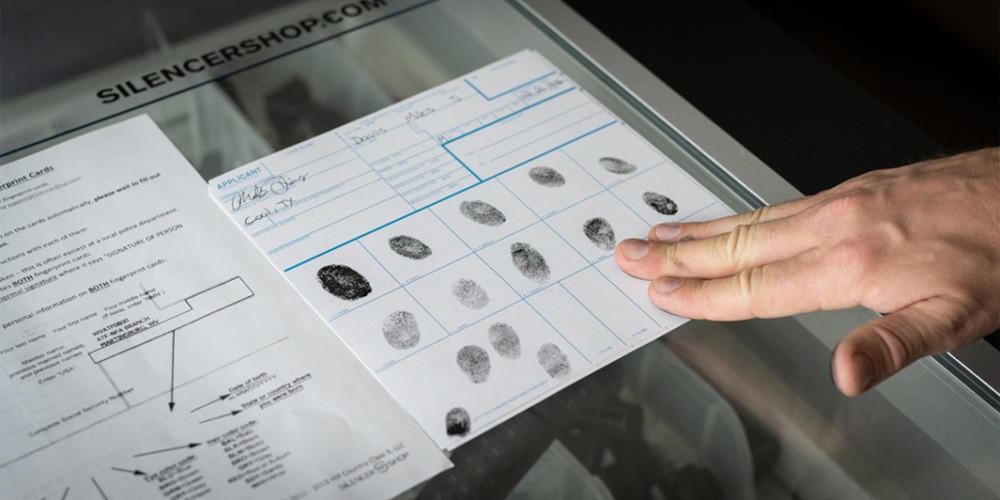
Navigating the complexities of National Firearms Act (NFA) applications just got a bit more manageable due to ATF’s clarification of the appeal process for denied and delayed/open status background checks .
According to ATF’s announcement, it appears to have at least partially resolved a years-long disagreement with FBI over which agency is responsible for NFA appeals. This resolution should provide much-needed clarity to help NFA enthusiasts who receive errant denials.
Let's break down what this means for NFA applicants, particularly focusing on the appeals process for people who have been erroneously denied by FBI NICS.
Introduction of Administrative Appeals: For the first time, NFA applicants have a formalized path to appeal the FBI's National Instant Criminal Background Check System (NICS) results.
The “firearm related challenge”: This is particularly beneficial for individuals with common names or resolving record-related issues that emerge during a NICS background check for NFA applications. If the applicant believes the “denied” response from FBI NICS was made in error, they may submit a Firearm Related Challenge, which will require them to provide their NTN. The processes implemented by the NICS when performing Firearm Related Challenges for disapproved NFA applicants will be the same as those performed when reviewing typical Firearm Related Challenges like handguns and non-NFA rifles.
Guidance for "NICS Denied" Applications: If your application is denied due to a NICS denial, the ATF’s NFA Division will advise on how to utilize the FBI NICS appeal form, known as the “Firearm Related Challenge.” This process requires the applicant to provide their NICS Transaction Number (NTN) for review. The NTN can be found on the bottom of the NICS Resolution Card , which should be provided to you upon a “Deny” or “Delay” result.
Use of Voluntary Appeal File (VAF): When NICS responds with a "Delayed" or “Open” recommendation during an NFA applicant’s background check, this leads to a disapproval of the ATF Form 4 or Form 1 application. This formalizes your ability to use the FBI VAF to appeal that result. This is a significant step in providing a clearer path forward for NFA applicants who have received notification of an “open status” or “delay”.
Additional Requirements: Applicants should be aware that this process might require submitting an additional set of fingerprints, in that case Silencer Shop will assist with providing additional fingerprints to support your appeal process.

This NICS appeal process between ATF and FBI represents a substantial shift towards a more customer-centric approach in handling NFA applications.
Applicants facing delays or denials now have a clear and formalized channel to address these issues. This should result in a less complex resolution procedure for affected individuals, and less headaches with the NFA process.
The VAF is particularly noteworthy. This process is already currently available to denied ATF applicants and is typically implemented post ATF Form 4 disapproval. ATF’s notice formalizes the process and clarifies the steps to be taken. The notice also gives some indication of a potential opportunity to resolve an open status prior to disapproval through using the VAF process. However, it’s not yet clear how or whether ATF might make this information available to applicants before disapproval. By utilizing the VAF, applicants can potentially expedite the resolution of their application status, making the process more efficient and less stressful.
If you are concerned about the FBI NICS system, or have had incorrect delays or denials in the past, you could consider applying for a unique personal identification number ( UPIN ).
The UPIN is a unique identifier that can speed up the NICS check, and results in more accurate checks, especially if you’ve changed your name or have a common name. You can include your ATF UPIN number for firearms purchases on the Form 4473.
If you're wondering how to get a UPIN, it's simple! You can apply online via the eVAF system.
Similar to the NFA Form 4 process, you will be asked demographic and identifying information, you will need to submit a fingerprint card (if your prints are on file with Silencer Shop, ( we have completed fingerprint cards available) , and pay a fee. Once your “Identity History Summary” is complete you will receive your UPIN which can be used for future NICS background checks.
The VAF Application takes from 2-12 months for most applicants.
Background checks can be denied due to criminal record, misaligned identification information, or other factors that would indicate the individual is a prohibited person .
ATF denials result for a variety of reasons, the most common denials are:
You can contact the ATF for more information about disapprovals on NFA applications.
The implementation of this updated appeals process is a positive step forward in making the NFA application procedure more transparent and applicant-friendly.
By understanding and utilizing tools like the Firearm Related Challenge and the VAF, applicants can navigate the process more effectively, ensuring their Second Amendment rights are upheld.